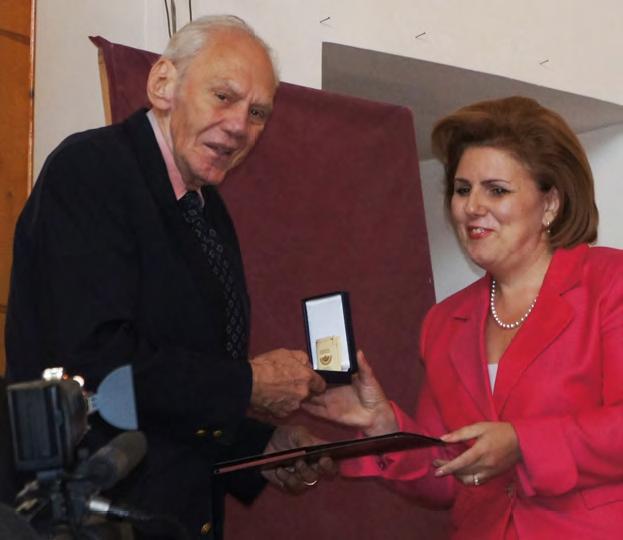YEREVAN — The Fourth Annual Conference of Armenian Writers in Foreign Languages took place in Armenia this year from October 10 to 15. Sessions took place at the Writers Union centers in Yerevan and Tsaghkadzor. Writers, translators and editors from at least 10 countries (Armenia, Canada, France, Georgia, Germany, Iran, Romania, Turkey, Ukraine and the United States), as well as from the Republic of Mountainous Karabagh, participated in the sessions. The Ministries of Culture and Diaspora were organizers of the conference, together, of course, with the Armenian Writers Union, and the sponsors, the World Armenian Congress and the Union of Armenians of Russia.
An opening press conference on October 10 in Yerevan presented the outlines of the conference’s activities to the media. The first official session was opened on October 11, again in Yerevan, by Levon Ananyan, chairman of the Writers Union of Armenia. Ananyan pointed out that the activity of Armenian translators in a sense allows many writers of Armenian origin abroad who write in other languages to take their places in the ranks of Armenian literature. Armenian independence has facilitated this process. Many of the writers abroad deal with issues of importance to the Armenian people such as Armenian culture and the Armenian Genocide.
A letter from President Serge Sargisian of Armenia, read by Hranush Hakobyan, minister of diaspora, valued the contributions of the participants and stressed the contemporary importance of the complex issues of Armenian identity. Hakobyan then welcomed the conference participants on behalf of her ministry and awarded the William Saroyan Medals, granted by the Diaspora Ministry in recognition of efforts toward the dissemination of Armenian culture in the diaspora, to Mari-Antoinette Varténie Bédanian (France), Madeleine Karacashian (Romania) and Aram Arkun (US), as well as certificates to Khachik Khacher (Iran), Natella Lalabekyan (US) and Levon Osepyan (Russia).
Conference patron Ara Abrahamyan, who is president of the World Armenian Congress and the Union of Armenians of Russia, gave a speech of welcome to the conference participants. Abrahamyan felt that the present conference was one of the various positive results of the independence of Armenia, whose 20th anniversary had just been celebrated.
The winners in various categories of the World Armenian Congress’ literary contest, “Twenty-first Century Armenian Prose,” conducted together with the Union of Armenians of Russian and the Armenian Writers Union, were then announced: Kurken Khanjyan (novel), Husik Ara (short story) and Eduard Khachikyan (short story series), while a special diasporan writer’s award was given to Boghos Kupelian.
Levon Ananyan then bestowed Abrahamyan with the award Literary Benefactor. Hasmik Poghosyan, minister of culture of the Republic of Armenia, spoke of the importance of October for Armenian culture. She awarded Peter Sourian (US), Migirdiç Margosyan (Turkey), Peter Cowe (US), Alan Whitehorn (Canada), Alexander Bozhko (Ukraine) and Raffi Kantian (Kebabciyan) (Germany) with Gold Medals of the Ministry of Culture.










